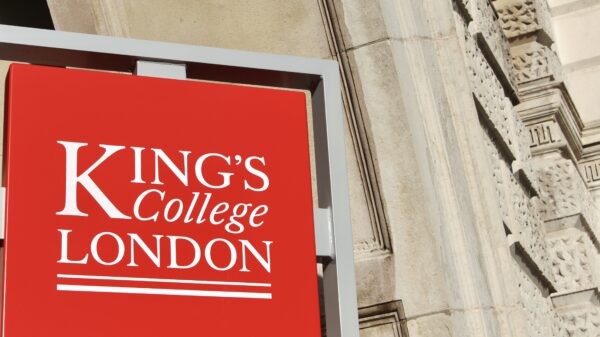Staff writer Ewan White discusses a recent peanut allergy study and its subsequent media coverage.
Recent research from King’s College London (KCL) has found that regularly feeding children peanuts from infancy to age five reduced the rate of developing peanut allergies in adolescence by 71 per cent. This finding has drawn heavy media attention, with coverage by major media outlets such as CNN and the BBC, amongst others.
What did the study find?
The new LEAP-Trio study follows from the results of an earlier Learning Early About Peanut Allergy (LEAP) clinical trial.
The initial LEAP trials began around 15 years ago. Of a group of 640 children at high risk of peanut allergy, half avoided peanuts, whilst the remaining half included peanut as part of their diet between four months old and five years old. It was found that the early introduction of peanut reduced the risk of peanut allergy at age five by 81 per cent. However, it was unclear if these children would need to take peanut consistently to remain protected.
As part of the subsequent LEAP-Trio trial, the investigators continued to study both groups from age six to age 12 or older. In this period, the children could eat peanuts however they liked. The results from this study, published in NEJM evidence on 28 May 2024 showed that whilst 15.4 per cent of the participants from the early childhood peanut avoidance group had developed a peanut allergy at age 12 or older, this was reduced to 4.4 per cent for the peanut consumption group. This showed that regular, early peanut consumption reduced the risk of peanut allergy in adolescence by 71 per cent compared to early peanut avoidance—whether the children kept eating peanut after the age of five did not matter.
Based on these results, the team at KCL recommend including a soft paste of peanut butter or peanut puffs into a baby’s diet once they are ready for solids. From then on, peanut butter can be consumed three to four times a week adding up to around one and a half or two tablespoons of peanut butter a week. They advise starting at four months, if possible, because this is before food allergies tend to emerge.
Professor Gideon Lack, the lead investigator of the study, argues that “early consumption of peanut will prevent more than 100,000 new cases of peanut allergy every year worldwide”.
Why is this significant?
The study’s findings challenge previous and existing advice on introducing peanuts into infant’s diets. Until 2008, parents were told to avoid giving children peanut products. Professor Lack believes that “decades” of such advice “made parents fearful of introducing peanuts at an early age”, when this actually helps to prevent peanut allergies.
The study’s suggestion of beginning the introduction of peanut at four months, if the infant can consume solids, also challenges the British National Health Service, who advise that parents can give smooth peanut butter to children from six months old, and the World Health Organisation, who argue for exclusive breastfeeding for the first six months.
The subsequent media coverage.
Several media platforms quickly covered the study across a variety of platforms, these the BBC, CNN, Time, the Guardian, the Evening Standard, Yahoo and the Australian Broadcasting Corporation. The findings were featured on the BBC 10 o’clock news on 28 May, (the day the findings were published), whilst also featuring as a TV segment on CNN. Both media giants highlighted the findings on their Instagram pages, with the BBC’s coverage receiving over 120,000 likes, whilst CNN’s received over 39,000. This contrasted with the only 8,000 views received by Professor Lack’s explanation of the study on KCL’s X, (formerly Twitter) page.
The study has received the most media attention of KCL’s recent research. Several recent studies, such as KCL research on antidepressants, saw almost no coverage by the mainstream media. Although a recent KCL study on the links between fossil DNA and psychiatric disorders was covered by the Independent, the Metro and MSN, this is only little of the coverage that the peanut study received. However, peanut allergy is rising in Western countries, with a prevalence of around 2 per cent in young children in North America, the UK and Australia. Therefore, it is hardly surprising that a study highlighting how to tackle the issue should receive such heavy media coverage.















